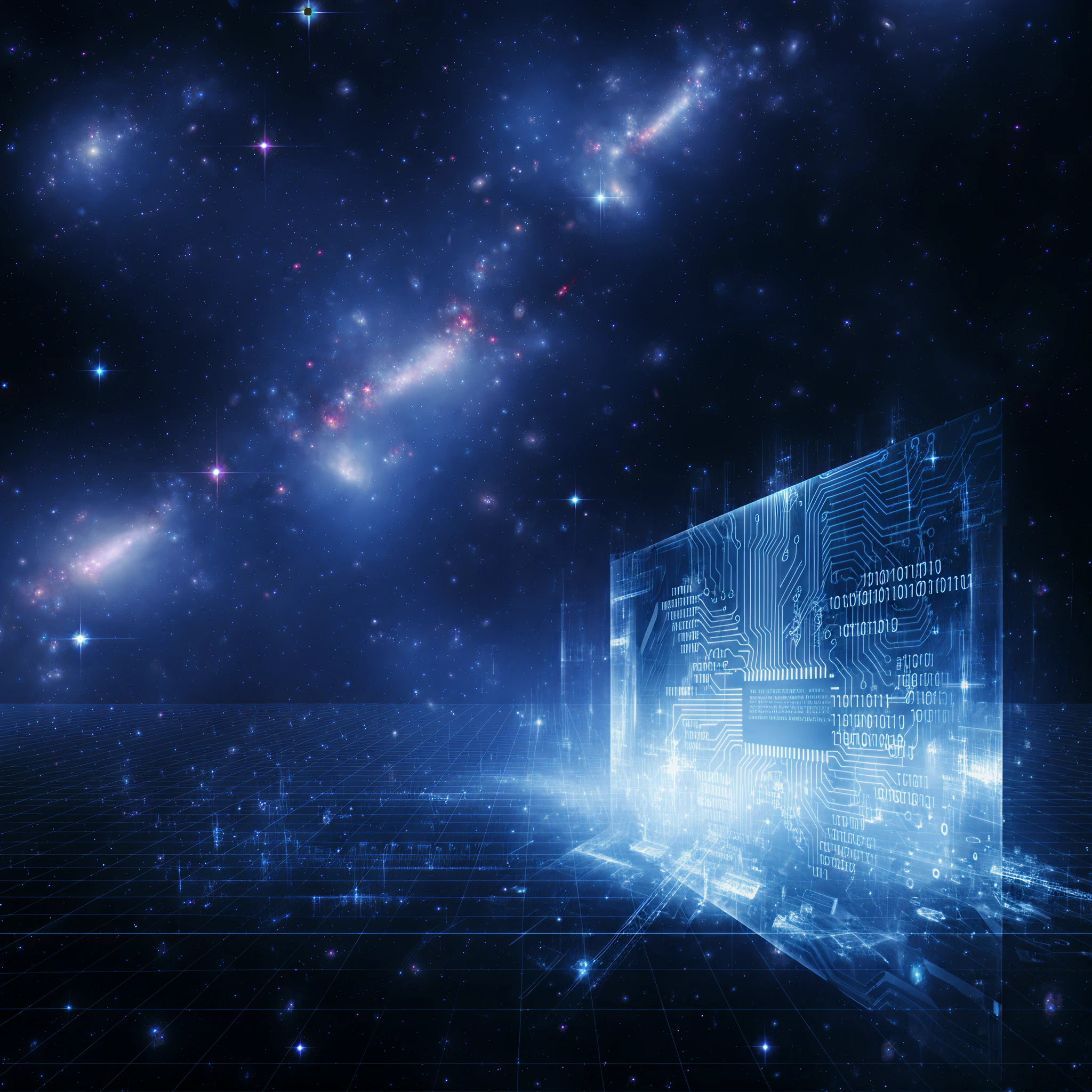Can the secrets to our universe be hidden within the laws of physics, disguised as a grand computational process? “Gravity may be a clue that the universe is a giant computer” is an idea at the intersection of theoretical physics, quantum mechanics, and even our conception of reality itself. This concept opens the door to profound implications about what the basis of existence could truly be.
Science enthusiasts and futurists alike are drawn to this theory, which claims the universe functions similarly to a computational device. From the behavior of particles to the mysterious nature of black holes, each clue inches us closer to understanding whether we live in a giant, cosmic computer. Here, we’ll explore this mind-bending idea and unpack the evidence that gravity might be part of the universe’s computational code.
Information Processing in the Universe
The idea of the universe as a computational system begins with how it seems to process information. At its most fundamental level, everything in the universe—from particles to macroscopic objects—is governed by measurable laws, just as a program follows a set of instructions.
Some phenomena suggesting computation include:
- Quantum phenomena resembling logic gates.
- The encoding of physical laws, such as electromagnetism or gravity, into what could be interpreted as a “rule set” for the universe.
- Behavioral optimization through entropy and energy conservation, often resembling how computational algorithms aim for efficiency.
Scientists like Melvin Vopson suggest the cosmos might act as a vast information network, with bits of data represented by the fundamental particles of the universe.
Quantum Entanglement and Computation
Quantum entanglement challenges our classical understanding of cause and effect. When two particles become entangled, the state of one particle instantly influences the state of the other, regardless of distance.
How does this imply computation?
- Non-local interactions suggest that information is being processed on a universal scale, almost like interconnected nodes in a computational system.
- Quantum bits (or “qubits”) described by entangled particles possess similarities to computer bits, only exponentially more complex, offering the potential for vast computational processes.
This interconnectedness aligns with the theory that our universe could operate as a computational system at its core, processing information continuously across vast expanses.
Black Hole Information Paradox
Black holes hold a central role in this theory. The “black hole information paradox” argues that any information entering a black hole is lost forever, conflicting with the principle that information in the universe should be conserved.
What if black holes don’t destroy information but instead process and compress it, behaving as computational devices? Here’s how:
- Black holes could store information in their surface area rather than volume, akin to how data is saved on computer hard drives.
- Hawking radiation, which allows black holes to gradually evaporate, may encode information like an output stream from a processor.
This model, then, views black holes as cosmic computers, whose computations help determine the rules of space and time.
Granular Space-Time
One key element lending credibility to the “universe as a computer” theory is the concept of granular space-time. The idea here is that space and time are not continuous but instead consist of discrete units, similar to pixels or bits in a computer program.
Experiments such as those studying the Planck scale (the smallest measurable size in physics) show evidence that:
- Space-time might be divided into fundamental, indivisible “building blocks.”
- These units behave like the tiniest cells of storage in a program, used to track changes or encode rules.
This lattice-like structure gives rise to the possibility of a coded “program” governing reality itself.
The Role of Gravity
Gravity has perplexed scientists for centuries, often described as the weakest yet most mysterious force in the universe. Could gravity actually serve as the universe’s method of compressing information, making the “program” more computationally efficient?
Melvin Vopson suggests that gravity may arise from the need to optimize and organize matter and energy in the universe. For example:
- Matter clustering into galaxies and planets is akin to how data is compressed in a computer, taking up less space.
- The attraction of gravity mirrors an algorithmic process that minimizes complexity and maximizes order.
By reframing gravity as a computational by-product, we might gain new insights—in areas where quantum mechanics and general relativity are currently at odds.
Implications and Future Research
If our universe is indeed a computational construct, what does that mean for science and humanity? Here are some key implications:
- Rethinking Physics: Viewing the physical world through the lens of computation could offer a unified framework to connect quantum mechanics with the theory of relativity.
- Unlocking Advanced Technology: By emulating universal computation, we could develop technologies mirroring the efficiency and power of natural processes.
- Addressing Existential Questions: It opens Pandora’s box on whether our reality is “natural” or created by some advanced civilization.
Future research could focus on:
- Experimenting with data compression models that mimic gravitational behavior.
- Pursuing observational evidence for granular space-time structures.
- Investigating whether particle interactions hint at algorithmic efficiency.
These areas represent fertile ground for interdisciplinary studies, combining physics, computer science, and cosmology.
The Bottom Line
The concept of the universe as a giant computer hinges on fascinating parallels between computation and the laws of nature. Gravity, entanglement, black holes, and granular space-time all point to the possibility of nature operating as a highly efficient algorithm.
While we’re still far from confirming this theory, exploring it opens a new lens on how we understand reality. Could gravity truly be a clue to the computational nature of the universe? If so, physics may soon take us closer to answering one of humanity’s greatest mysteries.
Curious to learn more about physics and computation?
Start unraveling the mysteries of the cosmos today with deeper scientific explorations!








